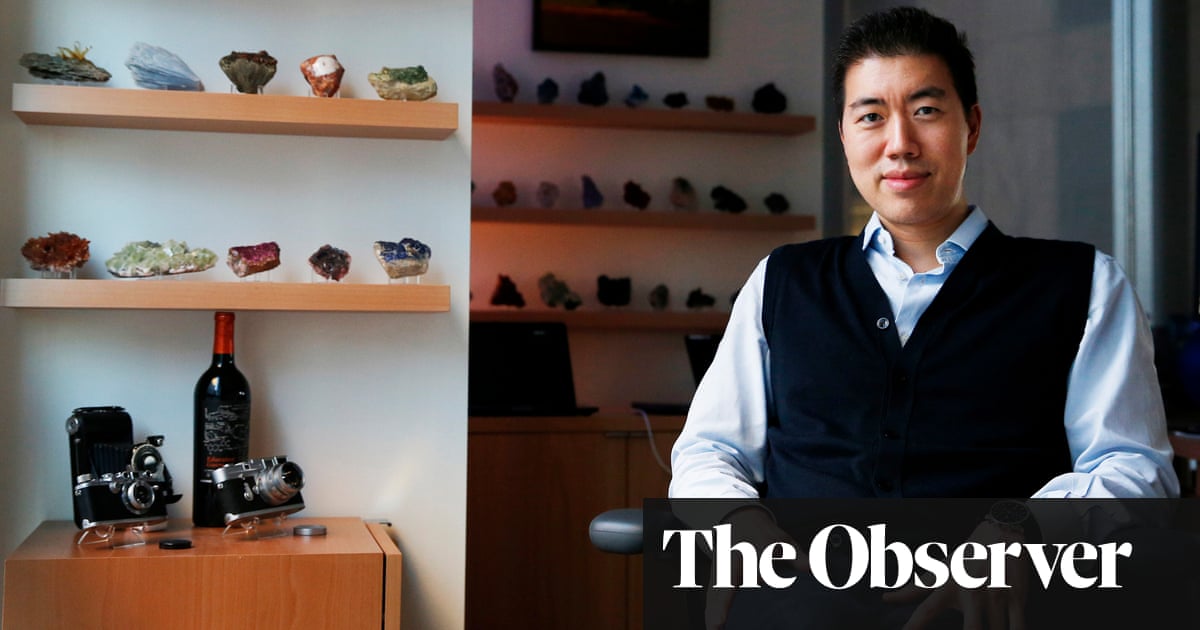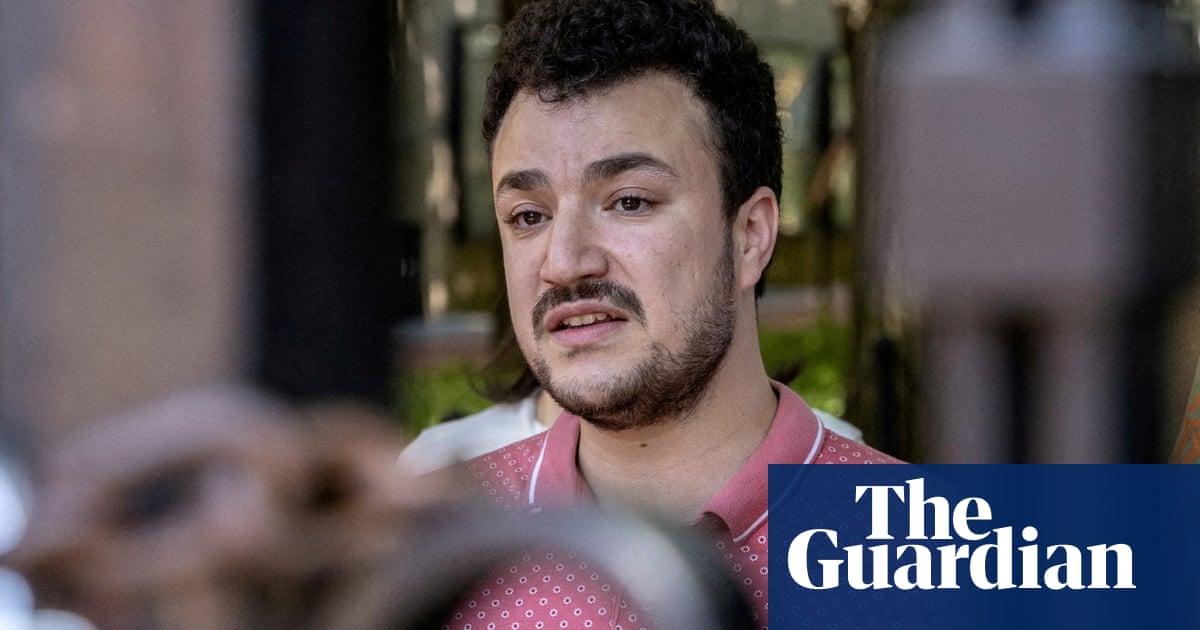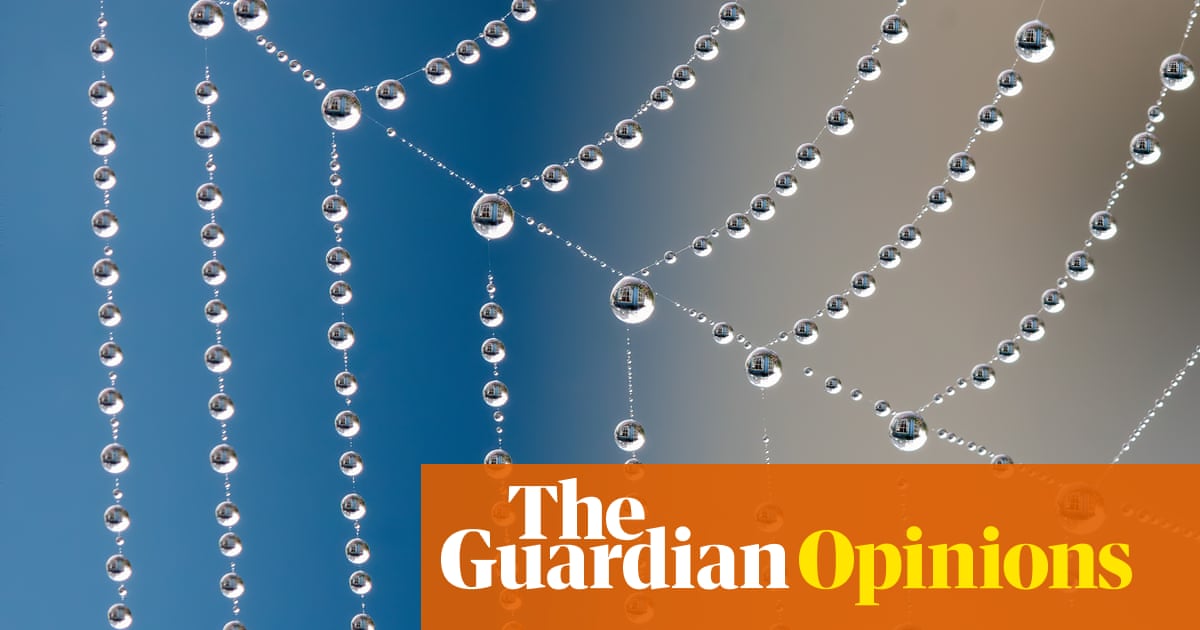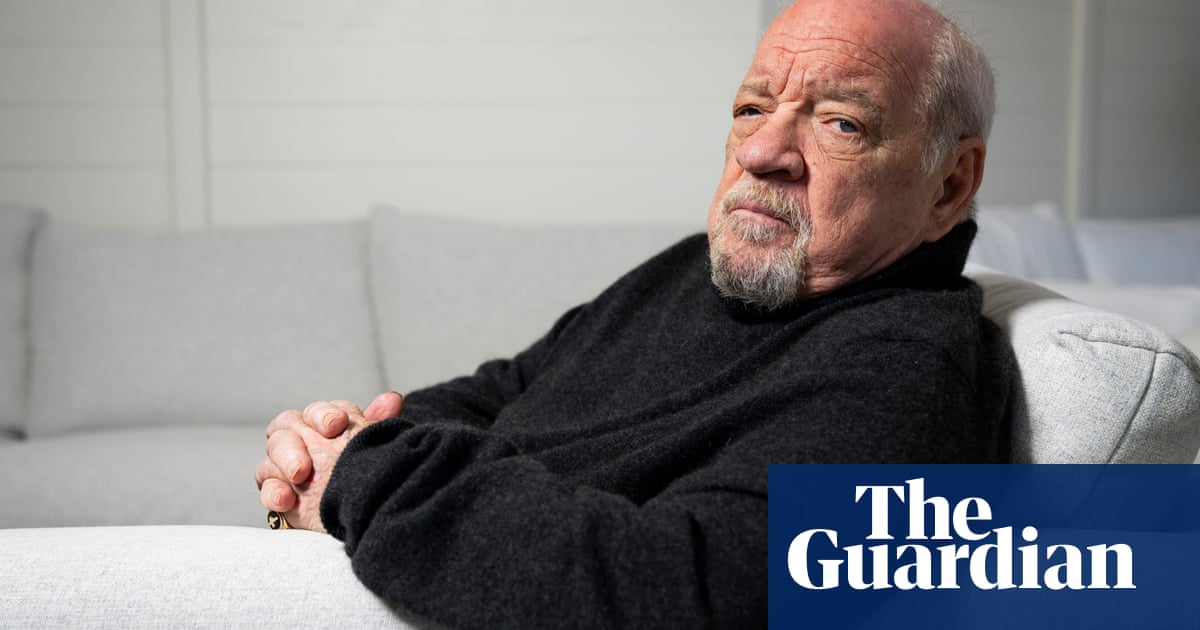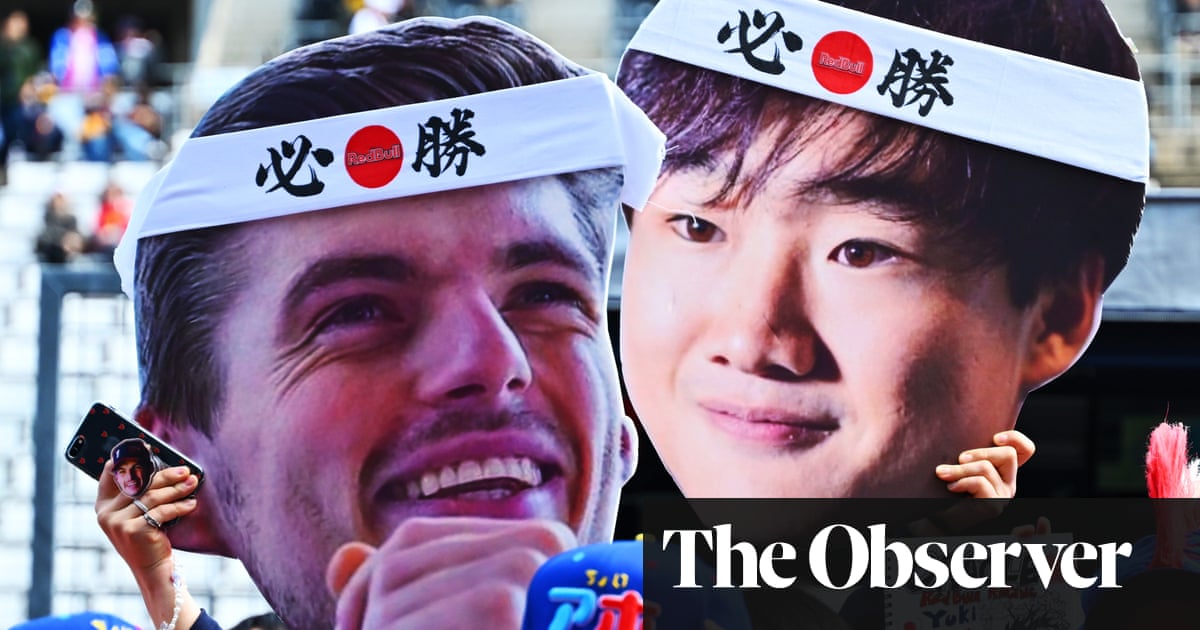Born in south London in 1986, Rob Beckett is a comedian and broadcaster. He started on the standup circuit in 2009, performing at the Edinburgh fringe in 2012 with his show Rob Beckett’s Summer Holiday. Television quickly beckoned – after hosting ITV2’s I’m a Celebrity spin-off series, he became a panel-show regular, appearing on programmes including 8 Out of 10 Cats and Taskmaster, as well as the travel series Rob & Romesh vs … . In 2020, he launched the hit podcast Parenting Hell with comedian Josh Widdicombe. He is married and has two daughters. His current tour, Giraffe, continues until April 2026.
That’s my dad in the background but, aside from that, I’ve got no other details. It might have been on holiday, possibly at my dad’s mate’s place in Spain. We always went there – he gave it to us for cheap, but I’m not sure why. You don’t ask questions in my family.
I don’t know why I was crying, either. As a parent myself, I do wonder if my first reaction on seeing my child upset would be: “That’s a good picture.” I’d probably be more likely to put the camera down and try to resolve it. I certainly wouldn’t want to document it at a time when taking a photo and getting it developed was a massive commitment.
Maybe it’s a fundamental personality trait or being the middle child, but I’d describe my younger self as being a “shy attention-seeker”. I definitely liked making people laugh, and I got good at it because it was so competitive in my house. Everyone was loud and funny – I was just the only one who decided to do it in the formal setting of a comedy club.
Apart from when I was with my circle of friends, I didn’t make jokes at school. Where I was from in Mottingham, you got attention by being good at fighting or being good at football. There were no class clowns – the type of humour preferred at my school was essentially being naughty. It was kids screwing up balls of paper and throwing them at the teacher’s head, and then watching them implode, rather than someone getting up at the front of class and doing a couple of gags.
I felt a bit lost and alone when I was little because I couldn’t learn in the same way as everyone else. I wasn’t very good academically – I recently found out that was because I was dyslexic. Being undiagnosed for so long, coupled with a teacher telling me aged four that I was not intelligent and wouldn’t amount to anything, meant I spent a lot of my younger years with no self-confidence.
That insecurity, coupled with the working-class fear of having no money, made me very driven. So, when I found that I had the ability to do standup, I was like a dog with a bone. I thought: “Comedy is the only thing I’ve got. I’ve been told I’ve got nothing else, but they can’t tell me I haven’t got this!” It started out of fear and carried on out of ego, to prove the teachers wrong.
As a teenager, I’d watch standup comics on TV and I realised I could predict the punchline. It made me think that I could probably write my own jokes. I was 23 when I finally got the courage to do it in public. My first gig was at Up the Creek in Greenwich. I don’t normally drink before a gig, but I had two pints to get my confidence up. Until that point, I had never done anything on stage; even in school plays I was mostly at the back. I remember the brightness of the lights – it was like the beam of 20 cars were on me. But I got through five minutes, I got a few laughs, and I survived. When I got home that night, I couldn’t sleep. I started kicking my feet with excitement and the covers came off me. I was so adrenalised and excited; it felt like I’d done a skydive.
When I started gigging properly, I set myself a goal – I’d do four shows a week just to reduce the amount of fear I had. I was doing temp jobs in offices at the time, so, often, I’d finish my shift then go out and get dinner, which was always the £1 shit sushi from Tesco. I’d then sleep in a disabled toilet in the office before my gig. I’d curl up on the floor in the corner, normally by the shower.
I hid the fact that I was doing standup comedy from my family for ages, just in case it went wrong. I knew my mum and dad would be OK with it, but I didn’t want my extended family to find out and go: “Oh, he’s tried to be funny on stage. What a wanker.” It’s very much a working-class mentality. There are certain people who don’t want anyone to do well – they’d rather drag you down than encourage you, because other people’s success shines a light back on their own unwillingness to try.
after newsletter promotion
At first I used comedy as a tool to help with my self-worth, but that method quickly became toxic. A bad gig would dictate my mood for the whole week. Through therapy, I can now detach myself from who I am as a performer. If the gig goes well, that’s great, but it has no impact on me as an individual. That said, I am planning on taking a break. I’ve always loved standup, and always will, but I would like to have a hiatus from it after this tour. I want to focus on the girls, because they’ll be 11 and nine when it finishes. By the time they’re teens, I want to be regarded as the minicab dad. I want them to be so bored of me when I come through the front door that they don’t even so much as look up, as opposed to it being a big event.
The Parenting Hell podcast was born out of the difficulties of raising kids during the pandemic, but it has become like an audio reality show of mine and Josh’s lives. People find it interesting because it’s relatable – we might both be on the telly, but that doesn’t stop your boiler exploding just before you take your kids to school in the morning.
I do still relate to the boy in the picture. I feel a bit sorry for him – not because of the crying, but because of how confused he was about to be at school, and how long it took to find out why. I still cry a lot – I am pretty in touch with my emotions. Anything can set me off: if my kids say something really sweet, or if I have a sad thought. I’ve fully opened the doors now and I’m happy for the feelings to flow in and out. Plus, I’m just constantly tired. Everyone’s emotional when they’re tired. I got one of those health monitors recently, and it keeps telling me that I’ve only had three hours sleep. I’m like, tell me about it!
Do I still define myself as a shy attention-seeker? In my personal life, I definitely struggle with being the centre of attention. I don’t ever want any big drama around me. If there’s a problem, I’m never the one to say: “Guys, we need to go for a drink and talk.” I don’t really do big birthday parties, either. But then my profession would suggest I am still desperate for a bit of the spotlight. Maybe a reluctant attention-seeker is a better phrase.

.png) 15 hours ago
5
15 hours ago
5

